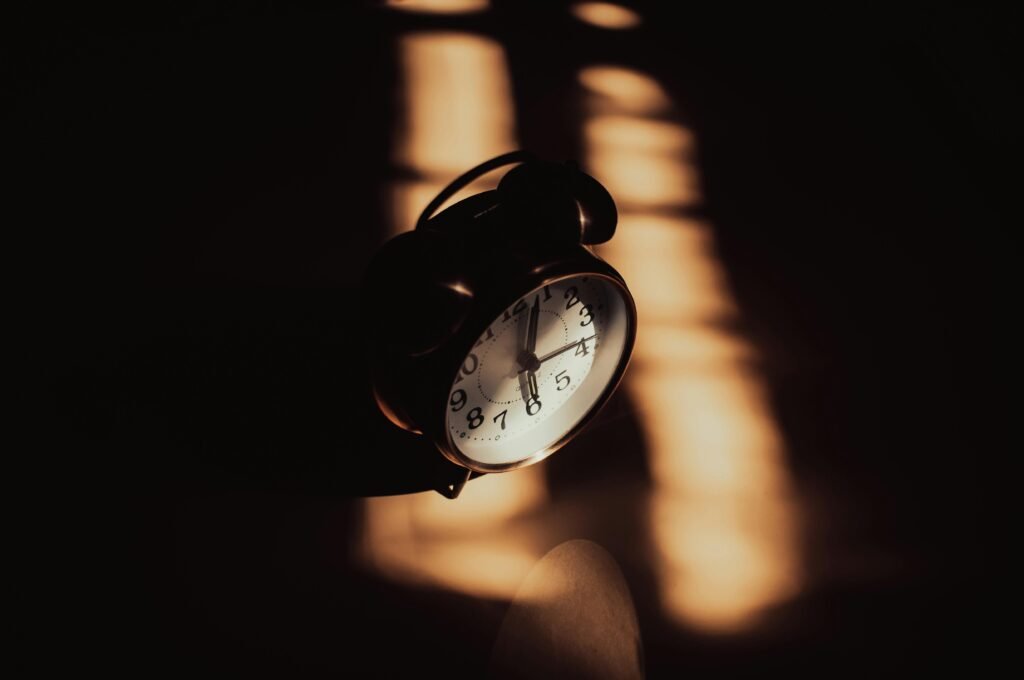
Introduction
The night shift isn’t for the faint-hearted. Working while the rest of the world sleeps demands serious resilience — both mentally and physically. If you’ve ever found yourself fighting to keep your eyes open at 3 a.m., you already know just how brutal it can be.
But here’s the surprising part: to stay energized on night shifts isn’t about powering through with sheer willpower (or endless cups of coffee). It’s about working with your body, not against it. When you understand how your body mechanism works and tweak a few habits, you don’t just survive the night shift — you can actually thrive.
This post will dive into the real science behind sleep, light, nutrition and mindset giving you practical strategies to help you stay sharp until sunrise.
Understanding How To Stay Energized On Night Shifts
At the core of the night shift battle is your circadian rhythm — your body’s natural clock that decides when you should be awake and when you should be asleep. By design, we’re wired to be active when the sun’s up and to wind down when it gets dark.
According to a review from the National Institutes of Health (NIH), disrupting this rhythm — as night shifts inevitably do — can lead to lower alertness, slower thinking, and over time, some serious health risks.
The important thing to know? You can’t just will yourself to be wide awake at 2 a.m. But you can outsmart your body’s clock a bit — by tweaking your environment and daily habits, you can help reset those signals to better match your work life.

Strategic Light Exposure: Your Invisible Ally
One of your strongest tools is light exposure. Light — especially blue light — is like a wake-up call for your brain, signaling that it’s time to be alert.
Research from the Journal of Clinical Sleep Medicine found that exposing night workers to bright light can seriously improve alertness and performance.
So, during your shift, try to flood yourself with bright light. Some people even use light therapy boxes that mimic sunlight. Then, when your shift ends, flip the switch: avoid bright light as much as you can. Throw on some sunglasses for your commute home and keep things dim at home to help your body start producing melatonin — your natural sleep hormone.
Small tweaks like these can make a big difference in how easily you fall asleep after work.

Timing Your Caffeine Intake
Caffeine can definitely be a lifesaver — but only if you use it wisely.
Studies from the Sleep Research Society show that drinking caffeine too late into your shift can delay your ability to fall asleep by hours.
The smart move? Have your coffee early in your shift to knock out that initial drowsiness, then start tapering off. Try to cut out caffeine at least six hours before your planned sleep time. That way, you’ll give yourself a real shot at quality rest after you clock out.

Eating for Energy: The Night Shift Diet
What you eat matters — a lot. Heavy, greasy meals or anything loaded with simple carbs can lead to big blood sugar spikes, followed by crashes that leave you feeling even more wiped out.
Instead, think balanced and steady: lean proteins, complex carbs, and healthy fats. A good pre-shift meal might be something like grilled chicken with quinoa or a hearty sweet potato salad.
During your shift, smaller, lighter snacks are your best bet. Things like Greek yogurt, a handful of nuts, a boiled egg, or a protein smoothie can keep you fueled without overwhelming your digestion (which naturally slows down at night).
The CDC even found that night shift workers who ate lighter, more frequent meals stayed more alert and felt better overall compared to those who ate heavy, infrequent meals.

Staying Properly Hydrated
Dehydration is sneaky — even a little bit of it can drag your energy way down. It can also mess with your focus and give you headaches.
Research published in the American Journal of Clinical Nutrition found that staying hydrated plays a big role in keeping your brain sharp, especially under stressful conditions like night shifts.
The key? Don’t wait until you’re parched. Sip water consistently throughout your shift. Herbal teas are a great option too (plus, no caffeine). Try to steer clear of sugary sodas or energy drinks that might lift you up briefly — and then leave you crashing hard.

The Power of Napping
When used smartly, naps are like a secret weapon for night shift survival.
NASA’s study on pilots and astronauts found that a 26-minute nap boosted performance by 34% and alertness by 54%.
The sweet spot? Keep naps between 15–30 minutes so you avoid falling into deep sleep (which can leave you feeling groggy). A short “prophylactic nap” before your shift can help you build a sleep buffer, and if your workplace allows, a quick nap halfway through your shift can recharge you big time.

Keeping Active During Your Shift
Long periods of sitting or standing still can basically invite sleepiness to take over.
Short, regular movement breaks can make a huge difference. Even a brisk five-minute walk every hour or two can boost your circulation and wake up your brain. No room for a walk? Even standing up, stretching, or doing a few squats by your station helps.
Research from the Journal of Occupational Health Psychology found that regular movement breaks actually improved mood and reduced fatigue among night workers.

Mindset and Mental Engagement
Boredom is your enemy on night shifts. Mindless, repetitive tasks can lull your brain into sleepiness faster than you might think.
If you can, mix up what you’re doing. Switch between tasks, chat with a co-worker, or challenge yourself with small goals (“I’ll finish this project in the next 30 minutes”).
Studies in cognitive psychology show that novelty and challenge keep your brain alert better than caffeine alone.
Creating a Post-Shift Sleep Ritual
Just because your shift ends doesn’t mean your body is ready to crash instantly.
Creating a calming post-shift ritual can help your brain switch gears. Start with a warm shower to relax your body. Stay off screens (yep, that means your phone too) for at least 30 minutes before bed — blue light from devices can mess with melatonin production.
Keep your sleep space dark, quiet, and cool — somewhere between 60–65°F (16–18°C) is ideal according to the National Sleep Foundation.
White noise machines or apps can also help block out daytime noises that might otherwise ruin your sleep.

Listening to Your Body
Even with the best strategies, your body still has limits. Chronic sleep deprivation builds up over time into something called “sleep debt” — and it doesn’t just go away by itself.
Make sure you carve out time for full recovery days whenever you can. Aim for 7–9 hours of uninterrupted sleep, and if your job allows, rotate off night shifts occasionally. If you’re struggling with ongoing sleep issues, don’t tough it out — get help. Your health is your foundation for everything else.
Conclusion
Working night shifts demands serious strength — but it also gives you a chance to master a different rhythm of life.
Thriving on night shifts isn’t about fighting nature; it’s about understanding it, and then working smart. With the right light exposure, caffeine timing, nutrition, hydration, naps, movement, mental stimulation, and recovery strategies, you can take control of your energy — and your success.
Remember: night shifts don’t have to be a battle. With the right approach, you can not only survive the night — you can own it.

Pingback: Fix Your Sleep Schedule After Night Shift: 7-Day Plan
Pingback: Night Shift Headaches: Why They Happen at 3AM and How to Stop Them